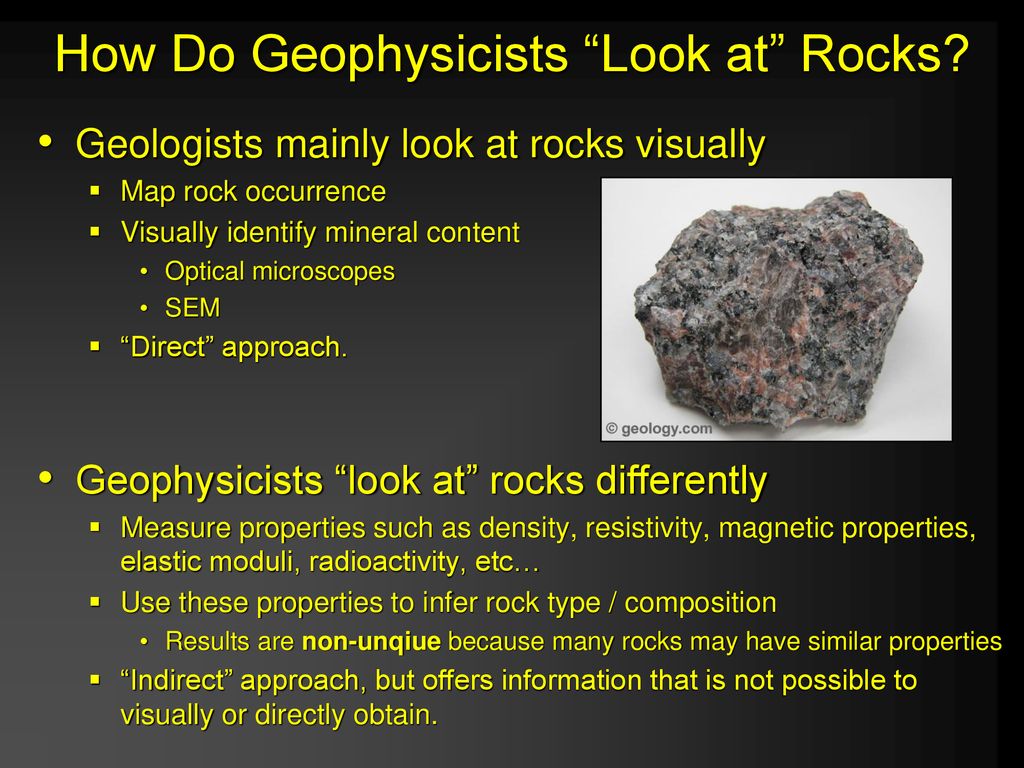All Categories
Featured
Table of Contents
Geophysical Surveying in Wattleup Western Australia 2021

Other possible geophysicist majors that aren't geophysics or geoscience consist of: Climatic sciences and meteorology Chemical and physical oceanography Earth science Environmental science Hydrology and water resources science Materials science By making any geophysicist degree, and by taking the required geology courses, you should qualify for an entry-level position as a geoscientist or geophysicist.
Ultimately, trainees should learn: a branch of geology that takes a look at the various elements of minerals, consisting of chemical structure, internal crystal structure, and physical properties. the study of rocks and the procedures and conditions that form and transform them gradually. There are a couple of neighborhoods in this branch of geology, including igneous, metamorphic, and sedimentary rocks.

This field examines structural rock functions such as cleavage, faults, joints, and little folds. They need to also find out the computer abilities needed to: examine data create digital models and maps run geoscientists' software application Students ought to also make the most of all opportunities to acquire real-world experience. Aspiring geophysicists should anticipate to invest time learning: in the classroom in the field in labs Certainly, abilities taught in the class are really essential for striving geophysicists.
Airborne Geophysical Methods in Mahogany Creek Aus 2020
For example, geoscientists spend a great deal of their time outside when working in the field, so they need to have "outdoor abilities" like camping and running boats, aircraft, and other vehicles. Because they invest a lot time in remote places, it's vital that geophysicists also have the physical endurance to bring required devices on their walkings to places of research study.
The job uses: a high average and leading revenues a high rate of individual fulfillment among geophysicists low work tension favorable job outlook More information on earnings potential and job outlook is detailed listed below. For trainees looking to land an entry-level role as a geoscientist or geophysicist, it takes four years, or the time required to complete a bachelor's degree in geophysics or an associated discipline.
Some research positions in geophysics need doctoral degrees. Also, if you plan to teach at a college or university, you need to earn a Ph - What Are Geophysical Surveys & Why Do They Matter in South Lake Western Australia 2023. D. in geophysics or a related field. The time it requires to earn a Ph. D. differs by institution and program, however it usually takes four to 6 years beyond the bachelor's degree.
Geophysical Survey in Ascot Aus 2021
In reality, the majority of companies need prospects to have a bachelor's degree in geophysics or a carefully associated discipline for all entry-level positions. And, sometimes, companies need a master's degree. As an outcome, there's no chance around the degree requirements for becoming a geophysicist. The majority of employers will anticipate or need a practicing geologist to be accredited for positions beyond those at the entry level.
Currently, 31 states need licensing for geologists, although licensing is not always needed, specifically for entry-level work. The states that do concern licenses use the Principles of Geology Exam (FGE), which is administered through the National Association of State Boards of Geology (ASBOG). Now that you know which degree for geophysicist tasks you require, you'll require to land a task, and it's important to find out just how much cash you can make in this career.
According to BLS, the average yearly wage for geoscientists is $93,580. The most affordable 10% of earners make less than $52,000, while the greatest 10% make more than $201,000 yearly. Incomes vary by market type and geographical area. According to BLS, specific industries provide higher incomes for geoscientists, and in some cases, they provide higher-than-average revenues.
Geophysicist Bob Embley: Ocean Exploration Careers in Wattleup Western Australia 2023
In fact, mining, quarrying, and oil and gas extraction offers over $32,000 more each year than the typical annual wage for this occupation. The federal government, too, offers over $10,000 more in incomes than the national average for geoscientists. In addition to industry type, geographic location can considerably impact revenues for this profession.

The top-paying states and their yearly mean incomes, according to the BLS, include: Texas $166,720 Oklahoma $149,630 Pennsylvania $120,590 Hawaii $120,130 Colorado $107,260 These five top-paying states offer much higher incomes than the average for this profession. Incomes for geoscientists in Texas are over $73,000 greater than the national average.
It needs to come as not a surprise that many of these high-paying locations remain in Texas and Oklahoma, but some are found in California, Louisiana, and Colorado. The top 10 highest-paying metro locations for geoscientists are: Houston-The Woodlands-Sugar Land, Texas: $188,400 Tulsa, Oklahoma: $186,490 Midland, Texas: $167,040 Odessa, Texas: $147,080 Oklahoma City, Oklahoma: $145,350 Bakersfield, California: $130,080 Urban Honolulu, Hawaii: $124,470 New Orleans-Metairie, Louisiana: $121,030 Washington-Arlington-Alexandria, DC, VA, MD, WV: $120,180 Denver-Aurora-Lakewood, Colorado: $116,910 For some geoscientists and geophysicists, living in a metro city is not as appealing as residing in a smaller neighborhood.
Latest Posts
Where Can A Geophysicist Work Other Than The Oil Industry? in Ellenbrook Oz 2021
Geophysicist in Como Aus 2022
Geophysical Surveys Definition & Meaning In Stock ... in Karrinyup Aus 2022